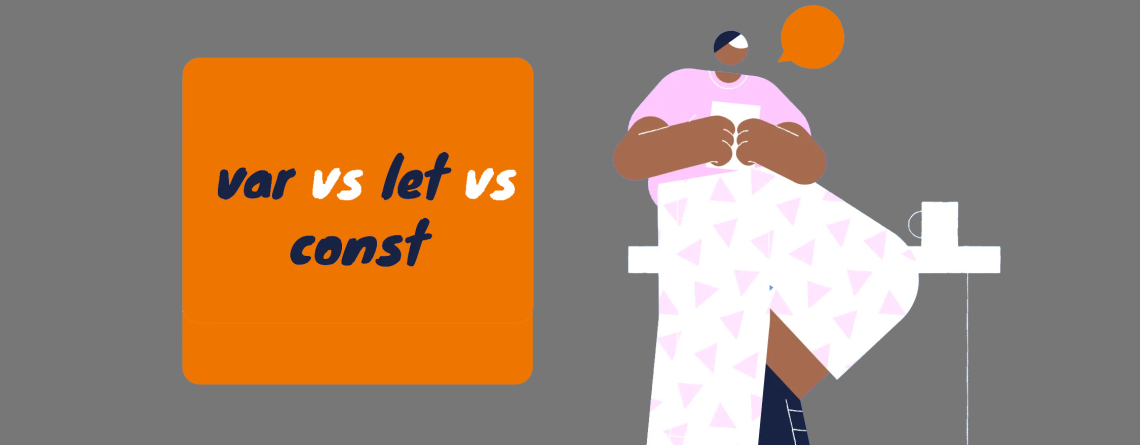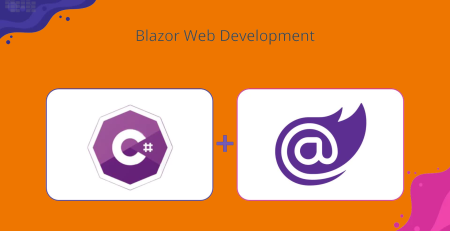JavaScript Scope: var vs let vs const
There are three different ways to declare variables in JavaScript, a popular and flexible programming language: var, let, and const. We will go into the realm of variable scope and examine the differences between var, let, and const in JavaScript in this blog article.
Variable Declaration in JavaScript
The var Declaration
JavaScript has included var from its inception. A variable that is declared with var is function-scoped, which means that it may be accessed globally if it is declared outside of any function or within the function in which it is defined. Var variables are also hoisted, meaning that during compilation the declaration is pushed to the top of the function or global scope while the initialization stays in place.
function exampleVar() {
if (true) {
var x = 10;
}
console.log(x); // Outputs 10, even though x was declared within the if block.
}In this example, the variable x is accessible outside the if block because of hoisting, which may not be the desired behavior.
The let Declaration
In ECMAScript 6 (ES6), let was added to solve some of the problems with var. Variables defined using let are only available within the closest enclosing block (function, loop, or conditional expression) because they are block-scoped. Let variables are only available after the time of declaration since they are not hoisted in the same manner as var variables.
function exampleLet() {
if (true) {
let x = 10;
}
console.log(x); // Results in a ReferenceError because x is not defined outside the if block.
}In this example, the variable x is not accessible outside the if block, which is the desired block-scoping behavior.
The const Declaration
const is another variable declaration introduced in ES6. Variables declared with const are also block-scoped like let. However, the key difference is that variables declared with const cannot be reassigned after their initial assignment. This immutability makes const ideal for declaring constants.
const pi = 3.14159; pi = 4; // Results in a TypeError because you cannot reassign a constant variable.
Benefits of Using let and const
1. Block Scoping
Both let and const provide block scoping, which confines variables to the block where they are declared. This can help prevent unintended variable leaks and make your code more predictable and maintainable.
function exampleBlockScope() {
for (let i = 0; i < 5; i++) {
// Each iteration has its own 'i' variable.
console.log(i);
}
console.log(i); // Results in a ReferenceError because 'i' is block-scoped.
}2. Avoiding Reassignment
The const declaration ensures that a variable cannot be reassigned after its initial assignment. This immutability can help prevent accidental changes to important constants in your code.
const daysInAWeek = 7; daysInAWeek = 8; // Results in a TypeError because 'daysInAWeek' is a constant.
Choosing the Right Declaration
When it comes to choosing between var, let, and const in JavaScript, consider the following guidelines:
- Use
letfor block-scoped variables and to prevent unintended variable leakage. - Use
constfor constants or values that should not be reassigned. - Use
varsparingly, if at all, as it has limited use cases in modern JavaScript.
The choice between these declarations should be based on your specific project requirements and coding standards. In modern JavaScript development, it is generally recommended to prefer let and const over var to write more reliable and maintainable code.
Conclusion
A developer must comprehend the extent and hoisting nature of var, let, and const to avoid any nasty bugs in their nicely arranged, readable JavaScript code. The choice of variable declaration can help improve the readability, maintainability and reduce errors within a code. These include let and const which led to enhanced scoping and immutability in the evolutions of JavaScript. Therefore, you should use them in any development project.












Comment (1)
Nice post. I was checking constantly this blog and I’m impressed! Very helpful information particularly the last part I care for such information much. I was looking for this particular info for a long time. Thank you and good luck.